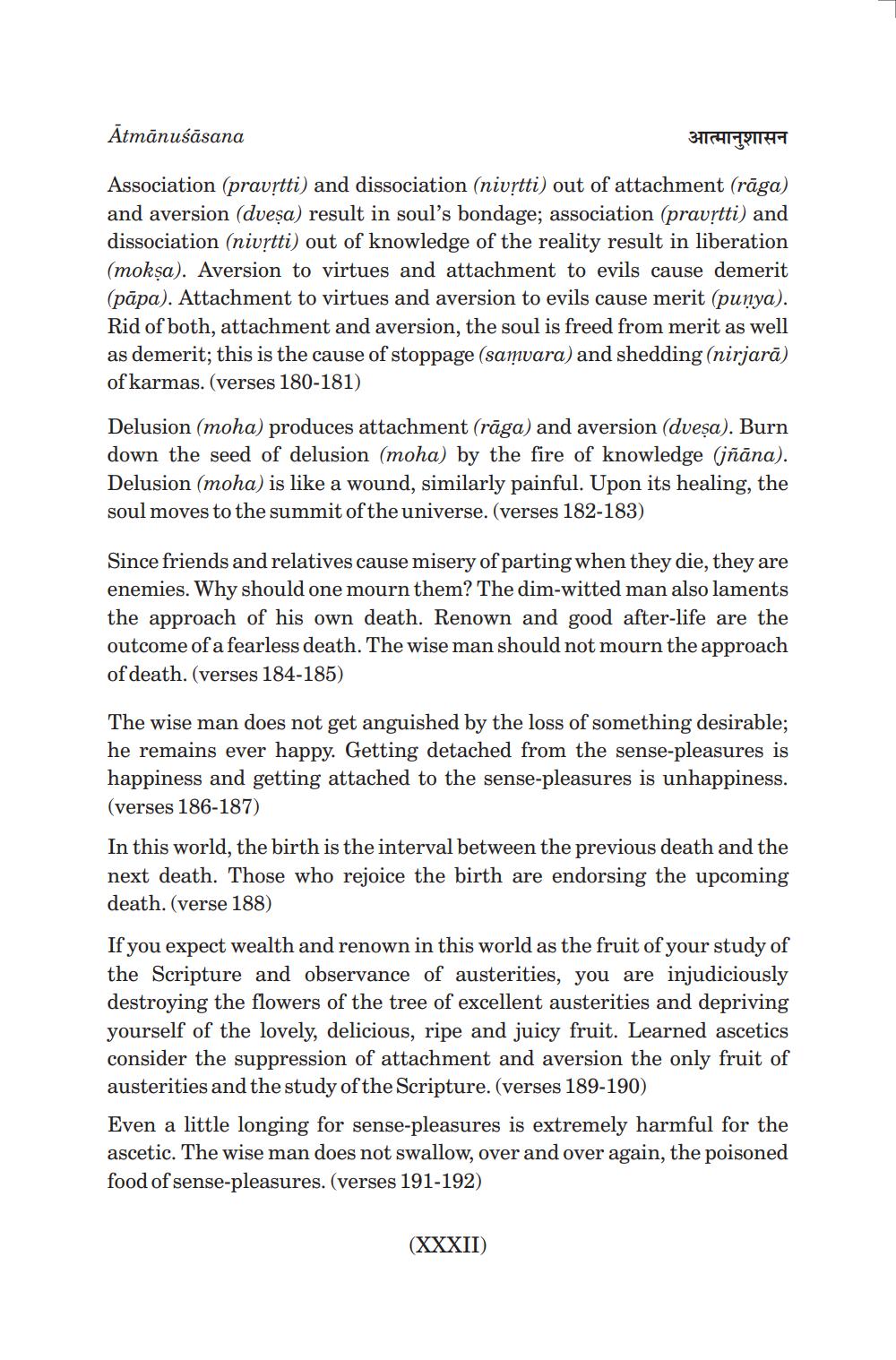________________
Atmānusāsana
आत्मानुशासन
Association (praurtti) and dissociation (nivrtti) out of attachment (rāga) and aversion (dveşa) result in soul's bondage; association (pravrtti) and dissociation (niurtti) out of knowledge of the reality result in liberation (mokşa). Aversion to virtues and attachment to evils cause demerit (pāpa). Attachment to virtues and aversion to evils cause merit (punya). Rid of both, attachment and aversion, the soul is freed from merit as well as demerit; this is the cause of stoppage (samvara) and shedding (nirjarā) of karmas. (verses 180-181)
Delusion (moha) produces attachment (rāga) and aversion (dveşa). Burn down the seed of delusion (moha) by the fire of knowledge (ñāna). Delusion (moha) is like a wound, similarly painful. Upon its healing, the soul moves to the summit of the universe. (verses 182-183)
Since friends and relatives cause misery of parting when they die, they are enemies. Why should one mourn them? The dim-witted man also laments the approach of his own death. Renown and good after-life are the outcome of a fearless death. The wise man should not mourn the approach of death. (verses 184-185)
The wise man does not get anguished by the loss of something desirable; he remains ever happy. Getting detached from the sense-pleasures is happiness and getting attached to the sense-pleasures is unhappiness. (verses 186-187)
In this world, the birth is the interval between the previous death and the next death. Those who rejoice the birth are endorsing the upcoming death. (verse 188)
If you expect wealth and renown in this world as the fruit of your study of the Scripture and observance of austerities, you are injudiciously destroying the flowers of the tree of excellent austerities and depriving yourself of the lovely, delicious, ripe and juicy fruit. Learned ascetics consider the suppression of attachment and aversion the only fruit of austerities and the study of the Scripture. (verses 189-190)
Even a little longing for sense-pleasures is extremely harmful for the ascetic. The wise man does not swallow, over and over again, the poisoned food of sense-pleasures. (verses 191-192)
(XXXII)




